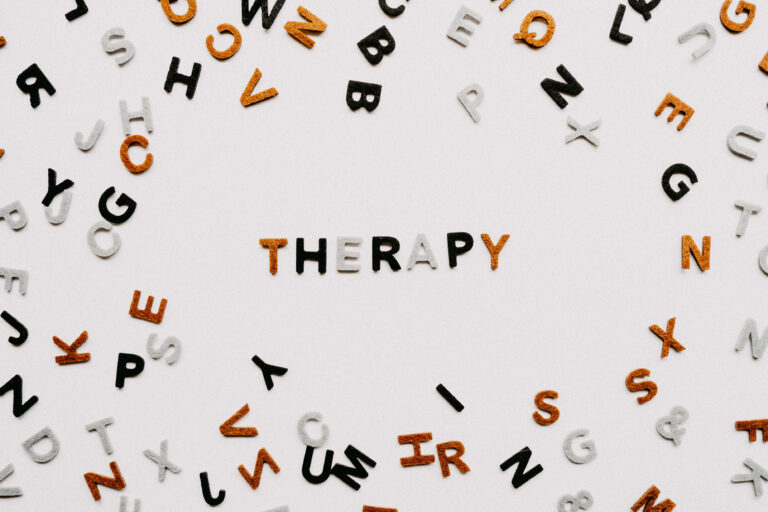Making Self Care a Priority in Widowhood
Prioritizing self-care while traversing the complex journey of widowhood isn’t easy. But, then again, nothing about widowhood is easy.
We often feel guilty taking time for ourselves or feel selfish for making self care a priority in widowhood, but it’s essential to remember that self-care is not a luxury; it is a necessity. By investing in your own well-being, you can show up as a better parent, friend, and advocate for yourself.
It’s because of self-care that you begin to heal and create space for growth amidst grief.
As we dive into our conversation, we explore the importance of taking breaks from grief and the necessity of embracing moments of respite. And, we open up about the challenges of navigating our grief while trying to take care of ourselves with examples of how we’ve been known to:
- Talk on the phone in our closets
- Walk and cry with our sunglasses on
- Watch mind-numbing TV shows
- Find comfort in feeding chickadees
- Manage grief with tap dancing
- And so much more!
If you’ve been looking for a vulnerable and funny conversation about coping with loss and finding your way through the challenges of widowhood while giving yourself the permission to take care of you, this is it.
Listen to the Full Episode
Watch the YouTube Episode
Connect With Us
- Are you searching for emotional support, practical advice, and guidance on navigating widowhood? Join us in the Widow Squad membership.
- Follow us on Instagram and subscribe to our YouTube channel.
- Get all the widow wisdom you never knew you needed including exclusive content sent right to your email Inbox. Sign up here.
- Join our private Facebook group here.
“Self care is not just physical. It’s really paying attention to how you talk to yourself. And hopefully it’s kind and compassionate.”
Episode Transcript
Melissa: Welcome back to the Widow squad, podcast. I’m Melissa Pierce, and I am here with my lovely cohosts, Kim Murray and Jen Zwinck.
So today we wanted to talk a little bit about prioritizing your self-care and what that means to us and to widows as they’re moving through this journey.
Let’s start with Jen. Can you share a little bit about what self-care means to you and why it’s important, especially for widows?
Escaping Grief: The Role of Mind-Numbing Activities
Jen: Well, I know that initially, for me, within those first few weeks and months after Brent died, there was very little time for any “me time.’” I know most widows experienced that, too. Those first few weeks and months, it’s like you’re so busy with all the paperwork and the daunting tasks of attorneys and Social Security visits and the million phone calls that you have to make. Some widows have to also take extreme measures right away, financially. Some people have to move. They have to move out of their home right away, or they have to sell a lot of their personal items just to get money in order to live.
So your whole world is turned upside down. It’s all chaos. And it’s really those first few weeks and months for me. We’re just trying to take care of logistics, household things, trust things. What do I do with money now? There was very little “me time,” I have to say. Self-care was not available to me. It really wasn’t. I had my daughter, who was only two at the time, so I didn’t have a minute to myself. I really didn’t. I was the only parent, and she was so little that I could never leave her for any significant amount of time. And trust me, I know I needed it. We all need it. I desperately needed that alone time, but I didn’t get it. It just wasn’t an option for me. In fact, there were so many times when I just needed to be on the phone, just, make a phone call, and I didn’t have that privacy. I couldn’t get away. Sometimes I just wanted to talk to a friend. I would have people call in and check on me, and I desperately wanted to talk to them, but I couldn’t leave her sight. She wouldn’t let me. There were a few times when, and I am totally going to admit this right now, but I locked myself in my closet.
Kim: Same.
Jen: I locked myself in the closet just so I could cry and talk to my friend or talk to my mom and just be on the phone. That was my little escape. And Claire would be sitting right outside the door, right on the other side, just waiting for me to come out.
I would get my cry out and I would talk to my friend or my mom and then I would try to compose myself and then open the door and go and be a mom again. I was always on because I had to be with her, I had to take care of her. It was time for snacks, it was time for the next meal. It was let’s go sit and play a puzzle. And I’m trying to be a mom and it was exhausting. It was such a struggle. I honestly can say it was the hardest, most difficult part of my entire life. The most difficult time trying to juggle grieving and being a mom to a toddler and prioritizing her needs and her feelings and my needs and my feelings.
So those first few months, my self-care was simply being able to be on the phone and talk to somebody for like 20 minutes. That’s all I got. That’s it. If you’re a mom to little ones and you’re listening to this right now, I feel you. I do. I know that struggle and I have to say, it does get easier. So just hang in there. Things did get better several months later when I was able to put Claire in this little day school. It was like a half day program two days a week. That was it. 9:00 a.m.to noon. I had a grand total of six hours to myself for the entire week. And that was such a luxury. Oh my God, that was such a treasure. It was such a lifesaver for me just to have those 6 hours. And don’t get me wrong, I love my daughter. I love my daughter. But I was going through some seriously emotional hurricanes, and I needed my space to process it.
Melissa: Yeah, you’re in shock.
Jen: I needed it. And what worked for me was my walk that I would do every single day. I would put on my sunglasses and that way I could cry as much as I needed to and wanted to while I was walking so nobody could really see my face, as if they were even looking at me in the first place.
But I would walk for miles and miles and miles and just have that time to myself. And I know a lot of other widows, they turn to walking or jogging for their me time too. I know, Kim, you do. I did a podcast interview with Anita Coyle, she’s another widow. And she said that she would go jogging or she would go swimming, but that she always needed to get a babysitter to come and watch her kids so that she could go. And I remember her telling me that she felt like she needed to run. Like we feel like we need to move our bodies and get the grief out. That was her way of processing things. But she would also feel so guilty about asking someone to come and watch her kids. Just so that she could go for a run or a swim. And she felt so selfish for leaving her kids to do that for herself. And we always do that, right? We always put ourselves last. She knew that was what she needed, and she knew that she needed that time for herself to grieve. But she felt so guilty about asking for a babysitter and asking for help. This is something that a lot of us do. We feel guilty for taking that time.
Kim: I mean, I remember not wanting to go for walks because my children were home alone. I used to walk with a neighbor of mine, and we would walk three miles, three to four days a week. And this is before Mark died.
We would meet in the morning at like 5:30 a.m. and we’d go walking. I’d get my walks out of the way and I’d have the whole day ahead of me. But after he died, I stopped walking because I was afraid to leave my house. I was afraid to go walking in the morning, because my kids were either sleeping or they were just home alone. I could not wrap my brain around the fact that I was going to leave my house with my children in it and go for a walk.
For the first couple of years after Mark died, I did not walk. I wasn’t doing the exercise that I needed or loved to do because I was terrified. My neighbors would say, “we can watch your house, we can see what’s going on.” No, you don’t understand. Like, in my mind, someone’s watching me leave my house. Then when I’m gone around the corner, they’re going to abduct my children. So, in my mind, somebody is already watching my moves and going to see when I’m not home. Regardless of whether my neighbors are watching my house or not, this is how my brain works. I didn’t even go on those walks because I was like, my kids are going to die. Something’s going to happen. I never even really thought about asking someone to come and watch them so I could go for a walk. That never even crossed my mind. It was just like, I can’t do this. This is why I can’t do this right now. Which is silly looking back on it. But again, they were younger. So when they were like eleven and 13, I think I was like, yeah, I could probably walk. I mean, it really took a while and a lot of going around and around in my brain that it would be okay. But yeah, like you’re saying, if anybody’s listening, get your babysitter and just go. Don’t live your life in fear like me. Because it’s not a nice place to live. But there’s ways to do it if you make it a priority and I just wasn’t making a priority.
Melissa: Yeah, it almost sounds more stressful to go take the walk when you’re worried about your kids.
Jen: No, this isn’t really going to help me. It’s not stressing me out even more.
Melissa: Right.
Jen: But that is definitely my piece of advice. Also, you are not being selfish. No, ask for help. Get the babysitter. Give yourself that time that you need. You will be a better person for it. And when you feel better, you can be a better parent.
Kim: You’re definitely a better mom.
Jen: And this is going to show on your face and your kids can feel it and they can sense it and they know it. So they look at mom and they say, hey, mom is okay. Therefore we are going to be okay. And that’s the kind of mom you want to be. Please make it a priority. Get help. If you need help getting a babysitter, get a babysitter.
Melissa: Yeah.
Jen: The other thing I wanted to say about this because we had my friend Lizette, she came to talk to the Widow Squad and she was telling us that for her, her “me time” after her husband Logan died was going to a sewing class. Her friends had chipped in and gotten her sewing classes for like two months. And every Wednesday night from like 6:00 p.m. to 9:00 p.m., she would go to this sewing class just to get her mind off things. She talks about that class all the time. It was like this perfect getaway from grief. And she was so deep in her grief and just consumed by it 24/7 like most of us are.
But the sewing class was a way for her to kind of escape a little bit. And I think that this is really important to emphasize too, is that we need a break from grief. It’s not healthy or good for us to grieve all the time. It’s good to give yourself a little bit of a break from it. And everybody has to find what works for them. Find ways that bring you comfort that make you feel better. Healthy things. Of course, we don’t want to escape using drugs or alcohol or anything numbing like that. But maybe some silly show that you like to watch. Some series. like Friends reruns. Or The Office reruns.
Kim: Or the Real Housewives.
Melissa: Which one? Beverly Hills?
Kim: No, I watch Orange County or New York. My kids would ask me, like, “why do you watch that show?” Well, it’s the most mind-numbing thing I could possibly do.
Melissa: Yeah.
Jen: Wait, so I had to think about this in those first few months, this is what I would do. Okay. And this is dating way back because it’s been years for me. But my go-to mind-numbing show was Jersey Shore. Do you remember that? What was their key phrase on MTV?
Melissa: Yeah. They’d be like, “cabs are here!”
Jen: I had Jersey Shore reruns playing in the background, and my mind just needed a break from all of the worry and all of the pain. And I’m telling you, that show really helped me escape. But I have to say, Real Housewives was the close second because, man, I had that on all the time.
Kim: Well, my boys would be like, “why do you watch this?” Like, they’re actually not nice people. And so they’d be like, “why are you watching this? Do you like this?” and I’d be like, “No, I don’t like it. I don’t like them. I don’t like anything about their lives, but I just don’t have to think. I don’t think about anything else.”
Melissa: So ridiculous.
Kim: So ridiculous.
Jen: My two pieces of advice are, number one, give yourself a much-needed escape from grief. Okay? It’s okay to not be sad all the time. You don’t need to feel like you should be sad all the time. Give yourself a break from it. And then number two, don’t be afraid to ask for help to give yourself that time. If you’re a mom with little ones at home, get help so that you can give yourself that gift of the time that you need. You’re not being selfish. You are not being selfish. You will be a better mom because of it, and your kids will be able to tell. So those are my two pieces of advice about that. Take care of yourself. For sure.
Melissa: Yes. So important.
Jen: All right, so, Kim, anything else besides that in that first couple of years, you put off the walking, which I’m shocked about, but what else did you do? Anything?
The Healing Power of Breaks
Kim: Well, again, fear was a big proponent of my life, but I also don’t like to or really know how to delegate. So that’s another, you might call “ character flaw.”
I like to do things myself, and that doesn’t always work because you can’t do everything and be everything to everyone all the time. Although I try really hard to do that. So, in the beginning, I was like, I’m going to do this, I’m going to do everything, I’m going to do it all.
Well, my husband was self-employed and I took over running his business and I didn’t know what I was doing because he sold chemicals to the metal processing industry in Detroit. I don’t know anything about chemicals. And he kind of taught me some things that year that he was sick before he died.
But when he died, it was like, game on. He’s not here anymore to ask questions or whatever. And he worked by himself too. He had some suppliers that helped him make his chemicals. But he was essentially a one man show. So, I was a one woman show at that point. I had to learn how to do this business.
And all these things are happening as I’m grieving. I’m learning how to run a business, and I’m solo parenting my children. And I’m not taking my walks, and I’m not practicing self-care because I didn’t have the time or I didn’t feel like I had the time or the resources to do any of that because I was knee deep in learning this new business and I don’t delegate.
Again, I wasn’t asking people to come watch my kids so I could walk. It didn’t even occur to me to do that. That wasn’t even a blip on the screen, right?
So that’s part of the problem, I think, is when you’re in that mode of just go, do, be, you don’t know how to stop. Those first couple of years, it was nonstop going and learning and doing all these things. I don’t think you really understand how hard grief is, how much work it is until you have those knots in your neck that won’t come out or you’re on the verge of a nervous breakdown because you’re teetering on that precipice of just going right over that edge. You don’t even know how hard grief is until you’re at that breaking point sometimes.
Which is why I think it’s so important that we talk about this now for these widows that are listening, because we didn’t have that. Nobody was telling me to go out and practice self-care. They weren’t saying, you should go do some things for yourself. Right? But at the same time, in everyonen else’s defense, I wasn’t acting like I needed help or wanted help or would have used the help.
I get that my friends and family probably thought, well, maybe Kim could use some help. But I didn’t ask for it or really accept it. So that’s on me. But again, the importance of doing these kinds of podcast shows is just to let people know that it is okay to ask for help. If I had it to do over again, I would have asked for more help and I would have maybe tried to be a little less afraid, but I’m not sure how that works, actually. I don’t know what it’s like to live in a world without fear.
Anyway,there was one day a week that I would go visit customers. Every Wednesday I would go out and meet with customers. That was my only day out because I was home with my children. So, I had this flexible work schedule and I knew that sometimes my mother-in-law would come over if I couldn’t get home in time to get my kids off the bus or whatever. But, most of the time I could get home by 2:00. I’d leave the house by 9:00 am and get home by 2:00 pm.
I would go visit customers, and remember, I didn’t love the job, okay? There was nothing about selling chemicals to the metal processing industry in Detroit that was appealing to me. Nothing about that was appealing, but it allowed me flexibility to be home with my kids. And the customers that I did have loved my husband, so in turn, they loved me, and they were so good to me. So even though the business part of it I didn’t love, I loved the people. And he loved the people. And I know when he was sick that year, he would just tell me how wonderful these people were. And I saw that for myself when I started going to visit them. I didn’t love what I was doing, but it worked for me at the time and it allowed me to be home with my kids.
So, every Wednesday I would go visit customers and then I would take myself out to lunch. That was my time before I had to be home because the bus comes and all hell breaks loose.
On those days, I would just take myself out to lunch. In the beginning, I was kind of trying to rationalize it in my brain. Should I do this? Should I go to this restaurant and buy this lunch for myself? And blah, blah, blah. It was a little bit of a self-talk to do this consistently in the beginning, but it actually turned out to be the only reason why I wanted to go out on Wednesdays and visit customers, because I got to go out to lunch. My self-care was taking myself to lunch and that’s really it. My customers were very dispersed around the Detroit metro area, so I would either try a new restaurant or go to an old standby. I think I’ve said before, like, I knew where all these restaurants were in a 30 or 40 mile radius because I went to all of them.
So that was one thing that I had to do in order to get myself up on Wednesday mornings, get dressed, do my hair, and walk out the door to go visit customers. And I would try to drum up some new business occasionally. And those were horrible days because I don’t like knocking on people’s doors and saying, “hi, I sell chemicals. Do you want to buy some?”
Melissa: Cold calling.
Kim: I was cold calling and so on. Those days I’d be like, okay, I’m going to whatever nice lunch place that I hadn’t been to before that I really wanted to go to. That was just kind of the way that I made it better. A little bit better. So again, just a simple idea of going out to lunch. Just figure out what brings you a little sliver of joy. Like the sewing class, like your friend went to Jen, that’s great. If you can’t do that, take yourself out to lunch.
Eventually I started getting massages every month because I had the knots in my neck that wouldn’t go away. Hot compresses, ibuprofen, whatever, they wouldn’t go away. So, we had this massage place in our area that had a monthly membership. And I bought the membership because if I prepaid for the massage, well then I had to go, right?
I had to pay for it in advance in order to make myself go to it.
Melissa: Yeah, because you lose the credit. They give you credits, right?
Kim: Yeah, exactly, you lose the credit. I was like, okay, this is going to force me to go once a month. And then I thought maybe I’ll go again because then if you go more than once, then you get a discount on your second massage. So I was like, oh, this is interesting. I could go twice a month. And it wasn’t really that much more. But the knots in my neck, like, I can’t really explain to you what they were like. The girl who would work on me said, “I can’t get these knots out.” I’m like, “I know, welcome to my world.” Like, I understand there’s not way these knots are going to come out. She literally couldn’t get the knots out. So, I thought maybe I should go twice a month. Maybe that would help me get the knots out. I went religiously every month for a couple of years and just forced myself to do it.
Eventually I got to the point where I could handle things a little bit better. I got a slightly more confident in the business, or at least I decided that I didn’t have to control the universe and everyone in it. So once that little bit of control subsided, then surprisingly, the knots in my neck started to go away. Who knew I didn’t have to control everything?!
Maybe I wouldn’t have been so literally tightly wound for so long. But those are just some examples. Like when we say self-care, it’s always to get a massage or get a pedicure. And that’s fine. I highly recommend them. I know people who’ve never had a massage, and I’m like, “get yourself to a massage place pronto.” You cannot continue going on in life without knowing what that’s like because it’s so amazing.
Melissa: And the toxins well, the grief is just in there. It’s in there.
Kim: It’s in there.
Melissa: They’re getting your body processing it.
Kim: Yeah, they’re moving it out. They’re actually getting it out. It took a while for those knots to release and go away. But that’s the point. Find the thing, whatever it is. It could be bird watching. You have no idea how much I love the chickadees that live in Michigan. I love the little chickadees. And when the birds fly south in the winter, the chickadees don’t go anywhere. They’re these little, teeny, tiny little birds that stay up here in these terribly cold, awful winters.
But there’s a place near me, a metro park, and you can go feed the chickadees. You take black oil sunflower seeds, you put them in your hand, and the chickadees will land on your hand and eat out of your hand. When I needed to, even in the middle of winter sometimes, just to be in nature or whatever, I would go feed the chickadees.
So it could be bird watching. It could be feeding birds. It could be gardening, right? Anything that brings you a little bit of joy, that’s really all you need to find is one thing. Yeah, I mean, we talk ourselves out of a lot of things because we don’t think we’re worthy. We feel guilty. We don’t want to ask for help. But grief is really hard.
Melissa: It’s a full time job.
Kim: It’s a full time job. It is really hard work. And everything is overwhelming. So just take one step. Do one small thing. Eventually I started walking again. That’s another one of my self-care things now, because I will not give it up under any circumstances, for any reason.
And I’ll tell my husband now I’m like, “dinner is going to be a little late tonight because I got out of my office late and I’m going for a walk.” Like, I’m going to put off dinner because I’m not missing my walk.
Grief is hard work. You don’t realize, like I said, until you’re at the point of losing your shit. And then you go, okay, now I gotta figure this out. Well, just figure it out before you get to that point. Grief is really hard so those are my examples and ideas of things that I did.
Melissa, what are some of the self-care things that brought you a little sliver of joy?
Finding Me Time: Strategies for Self-Care
Melissa: I’ve been listening to both of you, and I think we were widowed at different times in our lives, in different years. But I feel like we were on some kind of mind meld because I locked myself in my closet too. I don’t tell people about that. It’s like, yeah, I did that regularly. I would sit in my closet, all the shoes all around. I would talk and I’d rearrange my shoes. And my kids were 13 and 11 so it felt okay for me to leave them alone if I wanted to go for a walk and stuff. But I just didn’t feel like I had a ton of privacy. So, yeah, I would lock myself in a closet. That’s so crazy.
Kim: We all did that.
Melissa: I know we all did that. But we’ve never talked about that, the three of us.
Kim: No. It’s funny that you say that now.
Melissa: And we talk about everything. The sunglasses. Yeah, I remember going for walks and having my sunglasses and feeling very exposed, like people were looking at me. And I remember talking to my grief counselor and telling her that I didn’t really want to walk anymore because I just cried all the time and I didn’t want people looking at me. And she says, “Well, people aren’t really looking at you and even if they do give you a glance, you’re never going to see them again.”
Kim: Good point.
Melissa: Continue walking if you want to wear a hoodie or whatever and really cover your face. But she’s like, that is a really good thing to do.
I could talk for days and days about self-care. It’s really what I think really saved my life. It’s not intuitive. It’s not intuitive after your spouse, your life partner, dies, it’s not the first thing that comes to your head, hey, I should really take good care of myself. That’s not something that happens.
So you’re doing the business, the paperwork, the planning of the service. You’re in shock. There’s a lot of trauma. And I think it does get to a point, for me at least it got to a point, where I am going down the tubes. And that also means my kids are going to go down the tubes. So, that was really scary for me. That’s the minute that I started thinking I should really take care of my body. My body was already giving me cues, my heart was skipping beats, I was not eating. So, my body was already like, hey, wake up, Melissa. Take care of me.
That was at about the six month mark. That’s when I started really doing the walking, doing the mental work. I mean, self-care is not just physical. It’s really paying attention to how you talk to yourself. And hopefully it’s kind and compassionate.
I just did a lot of basically free things. Like, self-care doesn’t have to cost a lot. It’s not necessarily indulgent. I took a lot of baths. I think we’ve talked about this. I love taking baths. And when you’re talking about your friend Lizette, who did the sewing, when I thought about that, I was thinking, well, that’s just a really great way to be present. You have to be really present when you’re doing something tactile. You’re working with the needle going up and down. You don’t want to sew your finger. So it’s a really great way to be super present. And you can be sewing in that activity, not thinking about the past and not necessarily thinking about the future, because you’re right there. You’re making something. You’re putting a zipper on something.
I found something like that for me, which was tap dancing. So that was huge. I don’t do it anymore, but at that time, I just thought, I’ve never danced. I was never a little girl ballet dancer, none of that. I didn’t really consider myself super coordinated.
But I did the tap dancing anyway. And it was so fun. And I noticed during that hour that I was in that class, I didn’t think about anything other than that class and what steps my feet had to do, and I had to be in rhythm with everybody else.
Prioritizing Your Needs: The Ultimate Self-Care in Widowhood
Kim: That’s the whole idea I think is getting out of your head, right? Like, you do that one thing that gets you out of your head. But sometimes, maybe I don’t know if you guys experienced this too, when you want to go do something and then you don’t think you have the energy, you don’t think you have the wherewithal to go out and do it. But once you do it and then you’re like, oh, yeah, that was the best thing I could have done.
Jen: Yes.
Kim: Go do the thing. Because when you go do it, then you feel better, but you don’t know that until after you do it.
Melissa: Yes. It’s about getting your butt there.
Kim: Once you talk yourself into getting in your car and driving and going to the place and doing the thing before you talk yourself out of it.
Melissa: Yeah, get there. And once you’re there it was just such a vacation for my mind from the past and the future. And I didn’t really realize that that was happening until I could connect the dots later. So I highly encourage you to find something that can really keep you in the moment, whether that’s something physical or tactile or something you enjoy doing, even, like you were saying, the bird watching or the feeding of the birds, something out of the box. It doesn’t have to cost any money at all. Again, it’s really not intuitive to take care of yourself until it gets to a point, and hopefully you don’t have to get to that point.
Kim: Yes, you don’t have to get to that point. Yeah, that’s what we’re trying to say.
Melissa: Don’t get to that point. And asking for help is huge. It’s not easy, because I think we all kind of presented to the world like, we’ve got this. We can handle this. And that’s probably not what was going on inside, but that’s how we showed the world that we didn’t need help, but we did need it and they believed us.
Kim: They believed us that we didn’t need help. We teach people how to treat us. So we taught them that they didn’t have to help us, which was not true at all.
Melissa: Asking for help is hard. And then sometimes you may not get the answer that you want, too. You can ask people for help, and maybe that’s not the right person, but please keep doing it.
Kim: That’s a really good point, Melissa. Yeah. Sometimes you don’t get the answer that you want. That doesn’t mean you stop asking. That’s a really good point. Somebody will help you. Somebody will come along.
Melissa: And sometimes complete strangers will be the people that will help you, who will come to your aid. You just don’t know. But you gotta ask. And, practice in a mirror or whatever, or even sending emails are a lot easier to do. And, again, it doesn’t have to cost any money. Asking for help. Breathing. I did a lot of breathing. A lot of YouTubing on the different breath techniques. That’s free your breath is always there. Nobody has to know that you’re doing a deep breathing exercise in your car or sitting on a park bench. The advice would be to just do it immediately. Really try to start taking care of yourself immediately. And if you’re not doing it right now, start right now. If you’re hearing this for the first time and you’re thinking, wow, I should prioritize myself, or, that’s a novel idea. Do it now. And there’s so many things you can do.
Kim: We always say, if you’re waiting to get permission, we’re officially giving you permission.
Melissa: Yes. Here’s your permission.
Kim: Here’s your permission.
Melissa: To take care of yourself.
Jen: Well, I really love the idea that both of you did you prepay for something. Or you sign up for two months of classes, you sign up for your tap dancing lessons, and then you sign up for this subscription for massages. It’s like, you cannot get out of that now. You’ve already committed. You’ve already paid up front. You’ve already signed the contract, whatever it is. So you have committed yourself to take care of yourself. And I think that’s another great piece of advice. That way you can’t back out. You’re putting yourself first.
Melissa: Yes. And I did that too, Kim. The boys would go to school. I’d take them to school, and I would make my appointments right after I dropped them off. We probably went to the same chain.
Kim: What was it called?
Melissa: Is it Massage Envy?
Kim: No, it was La Vida.
You know what I do now? I was doing two massages back then, and, I don’t go there anymore, but I found a new person that I really like, and so she does 60 and 90-minute massages. So, I was going there two times a month I was like, sometimes the 60 minutes is just not enough. Right? It’s just not enough. So instead of doing two 60-minute massages a month, now I do one 90-minute massage. And so that extra half an hour is key. I go once a month, but it’s 90 minutes, and I get what I need out of that.
Melissa: Get it all worked out.
Kim: I get it all worked out. And so I still do it. So, again, many years later, I’m still going.
Melissa: Also, listeners, if you need your permission, you’ve been given your permission. Go out and take good care of yourself. Do it now. Prioritize your mental, physical, and emotional health.







